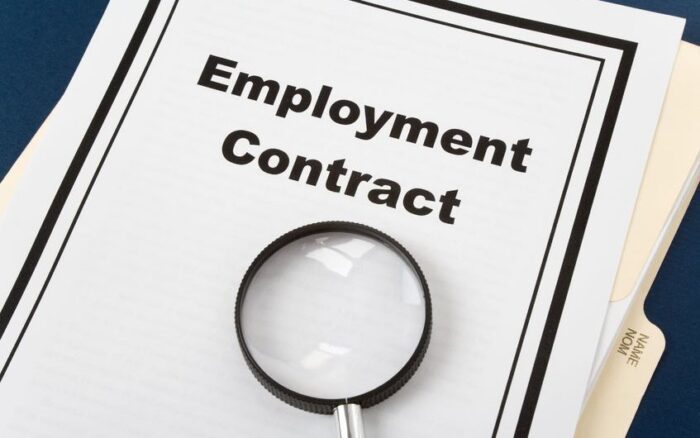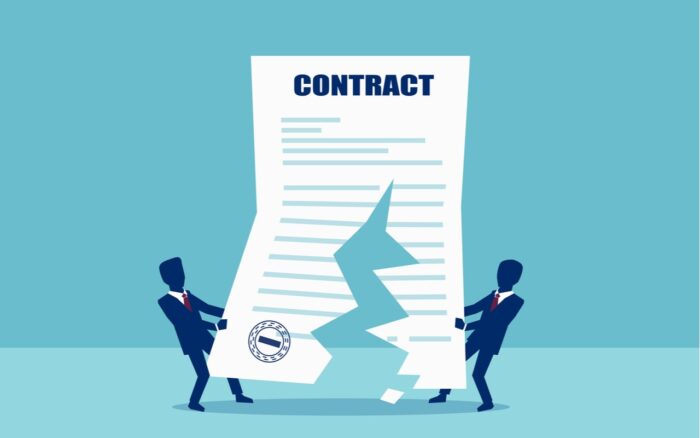
Employment contracts serve as the backbone of the professional relationship between employers and employees. These legally binding documents outline the rights, responsibilities, and expectations of both parties.
However, when one party fails to uphold their end of the agreement, it results in a breach of the employment contract. Understanding the nuances of such violations is crucial for both employers and employees.
It not only ensures a harmonious working relationship but also safeguards the interests of both parties involved.
Types of Employment Contracts

Employment contracts come in various forms, each tailored to specific employment scenarios. The most common types include:
- Permanent Contracts: These are ongoing contracts with no specified end date. They continue until either party decides to terminate the relationship.
- Fixed-term Contracts: These contracts have a specific duration, often used for project-based work or temporary replacements.
- Temporary Contracts: Typically used for short-term assignments, these contracts are often mediated through recruitment agencies.
Each type carries its own set of legal implications. For instance, terminating a fixed-term contract prematurely might have different repercussions than ending a permanent contract.
Clear terms and conditions, tailored to the contract type, can prevent potential misunderstandings and disputes.
Elements of a Breach of Contract

A breach of employment contract arises when one party fails to fulfill their obligations as outlined in the contract. Common scenarios include non-payment of wages, unannounced changes in job roles, or wrongful termination.
For instance, if an employee is hired as a marketing manager but is suddenly tasked with unrelated duties without mutual agreement, it could constitute a violation. Similarly, if an employer fails to pay an employee’s salary on the agreed date, it’s a clear violation of the contract terms.
Types of Breach
Breaches can be categorized primarily into two types:
- Material Breach: A significant violation that affects the contract’s core purpose. For example, not paying an employee’s salary would be a material violation.
- Minor Breach: A less severe violation that doesn’t necessarily negate the contract’s primary objective.
Understanding the distinction is vital, especially when seeking legal remedies. A material breach might warrant contract termination, while a minor violation might only require corrective actions.
Remedies for Violation of Employment Contracts

When a breach occurs, several remedies are available. Affected parties might seek monetary damages to compensate for losses. In some cases, specific performance, where the breaching party is compelled to fulfill their obligations, might be sought.
In extreme scenarios, injunctive relief, preventing the breaching party from committing further violations, might be appropriate. Pursuing these remedies ensures that contractual rights are upheld and justice is served.
Mitigation of Damages
In legal parlance, affected parties are often required to mitigate, or minimize, their damages. For instance, if an employee is wrongfully terminated, they should seek alternative employment to reduce potential lost wages.
Such efforts can significantly influence legal outcomes, with courts considering mitigation actions when awarding damages.
Employer Defenses Against Breach Claims

Employers, when faced with breach claims, have several defense strategies. They might invoke force majeure clauses, citing unforeseen events that prevented contract fulfillment.
Legitimate business reasons or employee misconduct can also serve as defenses. Regardless of the situation, effective legal representation is paramount to ensure that both parties’ rights and interests are protected.
Preventing and Addressing Breach
Prevention is always better than cure. Employers and employees can adopt several measures to prevent breaches.
Drafting thorough contracts, maintaining open communication channels, and documenting all professional interactions can prevent potential disputes.
Should disagreements arise, addressing them promptly and amicably can prevent them from escalating into full-blown violations.














